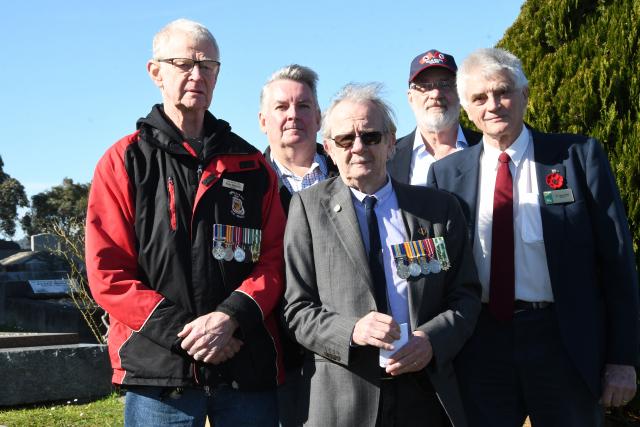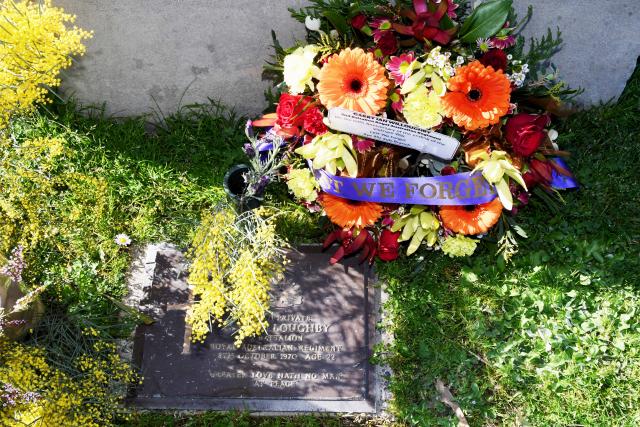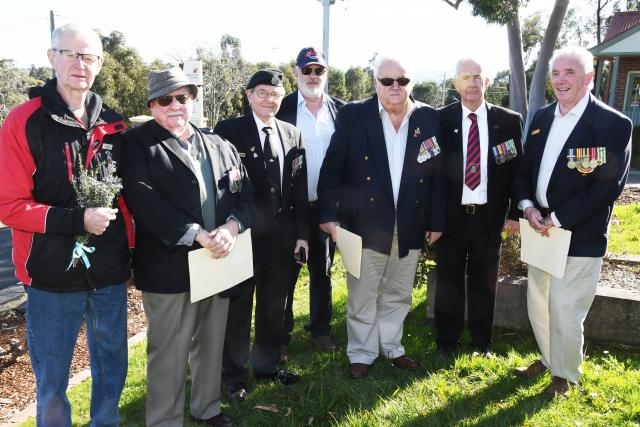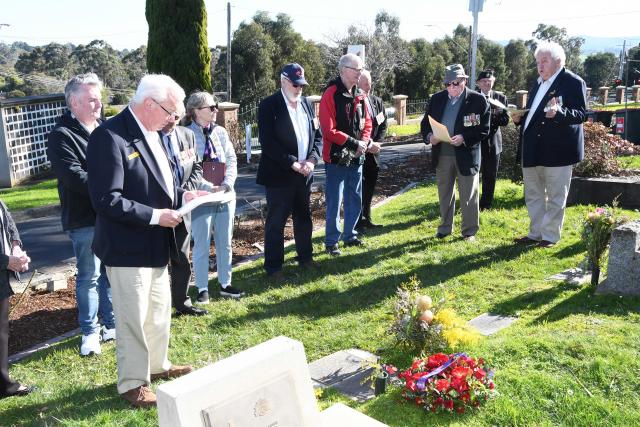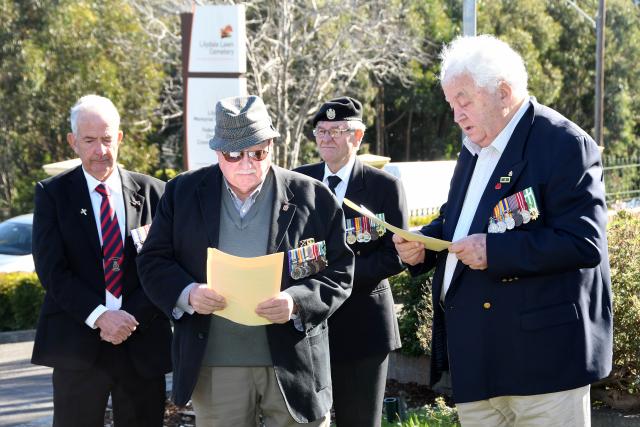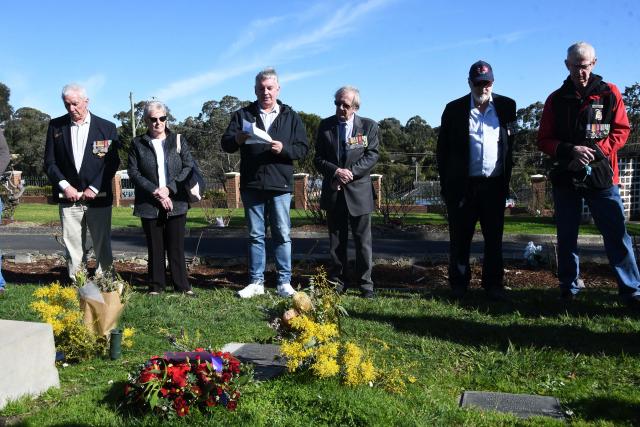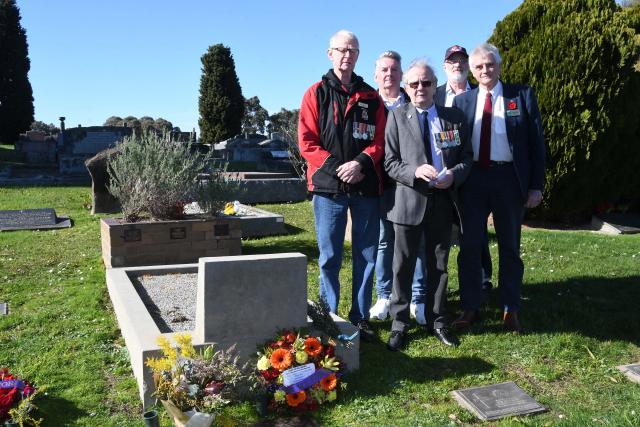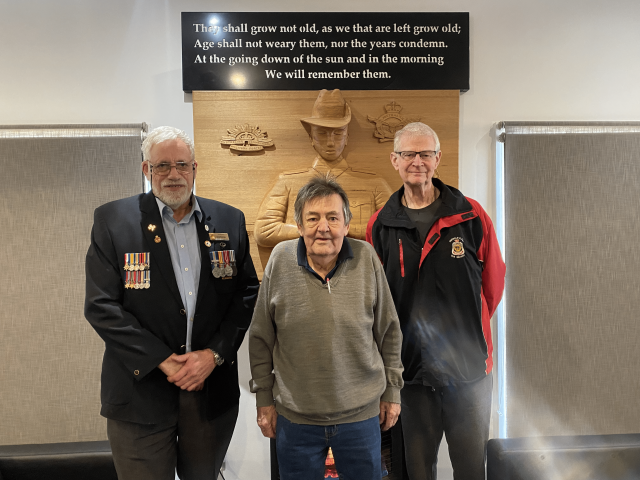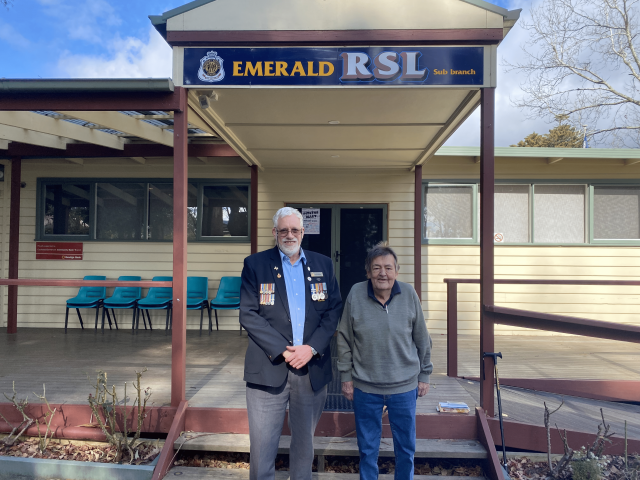By Tanya Faulkner
Imagine this: you’ve just turned 20 years old, there’s a war going on, and your birthdate is chosen meaning you’re drafted into the army as a recruit.
You get pulled away from your family to undergo months of military training and are shipped off on, what you believe to be, the adventure of a lifetime.
Instead, you’re face to face with the front line of conflict with a new mission, to stay alive and get home.
That’s the story of several Emerald vets who risked their lives in the Vietnam war between 1955 and 1973.
Next week marks 50 years since the withdrawal of Australian troops from the conflict, and the return of those soldiers who survived.
Several of our local vets said their return was “challenging”, with the media at the time accusing them of being “baby killers”, which eventuated in them coming home to a community that shunned them, and didn’t accept them back for years after their return.
In fact, according to Navy veteran Malcolm Snowden, they weren’t recognised for medals until 1987, were not accepted by the Returned Servicemen League (RSL) of Australia upon their return, and were not permitted to march at Anzac Day services.
Returned veteran Daryl Bristowe said most of the soldiers were “dumped” back at Tullamarine, which was Essendon at the time, and expected to go straight back to work after the war.
“No one wanted anything to do with us,” he said.
For most of the soldiers who were enlisted to serve in the war, their birthdates were drawn in a lottery-style conscription, and if they had recently turned 20 years old, they were called on to serve in the military.
Veteran Bill Black was able to defer his enlistment for 12 months to complete his university studies, however said you couldn’t escape it if your birthdate was drawn.
“You either had two years of serving in the military once your birthday was drawn, or they said you would have two years in prison,” he said.
Once he went into service, Mr Black said they underwent an extensive 12-week training in Puckapunyal in preparation for the conflict.
“We were made into the ultimate “killing machine” in our training, where we were trained in a way to remove ‘fear’ and ‘flight’ out of our minds.
“There were soldiers on you the whole time, screaming at you, and you had to have everything in your locker in its exact spot or you’d be punished.
“We worked 14 hour days, and the other eight was often spent ironing clothes or polishing boots,” he said.
Mr Bristowe said after training, the majority of soldiers were enlisted into infantry, as there were nine battalions during the conflict.
“If you showed any kind of interest in infantry, you were taken in that role.
“When we were sent to Vietnam, around seven out of 10 soldiers were taken on as infantry, and others went into specialty roles.
Mr. Black said he was further trained as a medic after his infantry training, as his Colonel wanted one medic with every platoon in the battalion.
As the soldiers were shipped off to Vietnamese shores, he said they “didn’t know what to expect” and believed they were going on the “adventure of a lifetime”.
Mr Black then spent the remainder of his two years sleuthing around the jungle, often with “stuff all” food to eat and a 54 kilogram pack with everything he needed on his back in the heat of the war.
When the soldiers returned home after the war, he said many of the vets were “crazy” on their return.
“No one knew what we had been through, what had been our ‘normal’ during the war, or what we’d seen.
“It was very different to the World Wars in terms of the conflict, we were out in the jungle a lot of the time and always had to be alert every second of every day,” he said.
He said after being in an environment where they had to be hyper-alert, where every step could be a threat or their last step, being pushed to their physical limits, the war “mentally destroyed” them.
Several of the vets still experience their traumas today, and have since their return back to Victoria.
One veteran said it took a long time for him not to jump into a gutter at the sound of a car backfiring.
Mr Bristowe said, on a recent excursion on the Puffing Billy train, he had to sit down because the flashing lights reminded him of the mortar flares he used to fire during the conflict.
Mr Black said his wife, Karen, “probably saved me” once he returned.
The pair, who had been childhood friends before Mr Black went into the army, got married upon his return in 1972.
“We were different people when we returned, and we weren’t ever going to be the same once we got back,” he said.
Both Mr Black and Mr Bistrowe joined the police force several years after their return, and have done what they can to survive and reintegrate back into the Emerald community.
Mr Bistrowe said what saved him from going ‘mad’ was his community work that he participated in, including with the Monbulk RSL, donating blood to the Victorian Blood Bank, is a ember of the Vietnam Veterans Outer Eastern Melbourne chapter who he fundraises for, and serves with the Emerald SES.
He has helped more than 300 military vets and their families receive Federal Government Certificates of Appreciation for those who have served in the military.
Earlier this month, several veterans gathered at Lilydale Lawn cemetery to commemorate those who they fought with, who did not return to Australia alive.
One of those was Gary Ian Willoughby, who died in service at the Vietnam War during a heated conflict on October 8, 1970, at the young age of 22 years old.
He was conscripted when his birth date was drawn in 1967, was assigned to the second battalion after being able to defer for 12 months, and was relieving the 6th battalion at the time of his sacrifice.
Locals wanting to commemorate those who gave the ultimate sacrifice during the Vietnam war are welcome to attend the Healesville Vietnam Veterans Day on Sunday, 13 August.
Assembly for the march will be at 10:15am, with the service commencing at 11am at the Healesville RSL.

